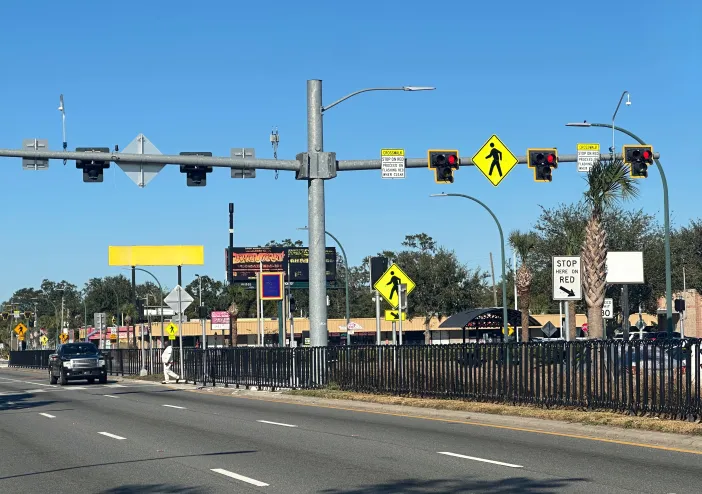
Hayden AI, a provider of AI and spatial analytics technologies, and Lyt, which specialises in intelligent connected traffic technology, have agreed to jointly develop urban mobility solutions.
The companies, based in the US, seek to combine the real-time data and location accuracy applications of Hayden AI’s bus-mounted vision AI platform and Lyt’s transit signal priority system to create tech solutions to help transit agencies improve road safety, on-time bus performance and accessibility.
Hayden AI's automated bus lane and bus stop enforcement platform is installed on hundreds of transit buses across the country to improve road safety, transit reliability, and transportation accessibility for people with disabilities and sustainability.
Meanwhile, Lyt.transit, a transit signal priority solution, uses cloud technology powered by AI and edge processing to successfully time traffic signals so that transit buses regularly receive green lights at intersections while minimally disrupting normal traffic flow.
“Transit zone enforcement and transit signal priority are two powerful tools to improve transit service for riders,” said Chris Carson, chief executive and founder of Hayden AI.
“Accurate real-time location data is essential to the effectiveness of our transit signal priority platform,” said Tim Menard, chief executive and founder of Lyt.
Both companies said they have a track record of delivering transit reliability and safety improvements in cities across the US. In New York City, where Hayden AI technology is installed on Metropolitan Transportation Authority buses, transit speeds have increased by as much as 36% on certain routes and vehicle collisions have decreased by 20% on average on streets with transit routes using this technology.
In Portland, Oregon, the city’s TriMet's FX2 Route experienced a 70% reduction in signal delay and a 13.2% savings on fuel costs when using Lyt.transit.








